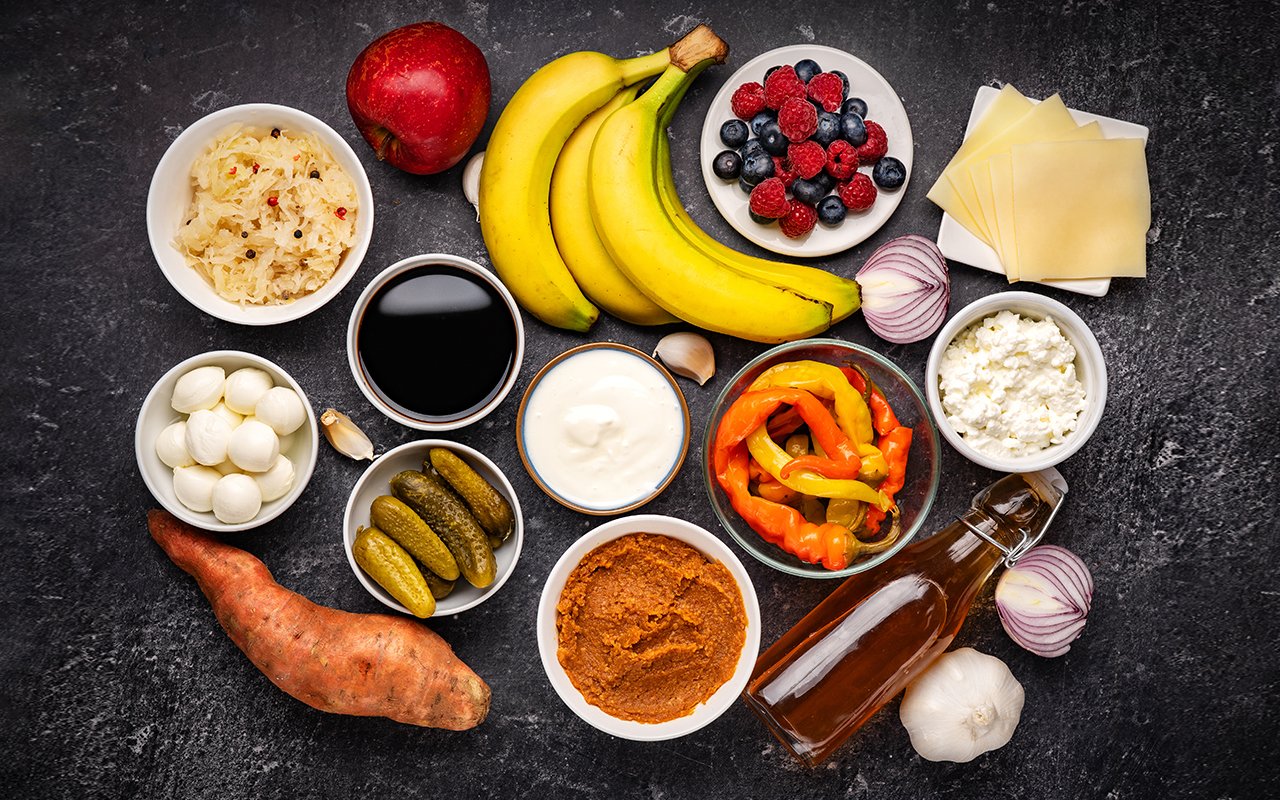Let's delve deeper into how a low-GI diet benefits both mental and physical well-being and why it deserves a place in your everyday life.

In a world where our food choices significantly influence our health, understanding how diet impacts mental and physical well-being is crucial. Among the numerous dietary approaches, the low glycemic index (GI) diet stands out as a practical and sustainable option for improving overall health. This dietary pattern focuses on consuming foods that release glucose slowly into the bloodstream, avoiding spikes in blood sugar levels. By stabilising blood sugar, low-GI diets not only support physical health but also play a significant role in mental health, affecting mood, concentration, and energy levels. As more individuals seek long-term health solutions, adopting a low-GI diet could be a holistic step towards a healthier mind and body.
The relationship between food and health is undeniable, especially in India, where diabetes, obesity, and mental health disorders are on the rise. Urban lifestyles often promote high-GI diets with processed foods, sugary drinks, and refined grains that disrupt blood sugar balance. This can lead to energy crashes, mood swings, and long-term health risks. Low-GI diets provide a natural, nutrient-rich alternative that not only improves physical resilience but also enhances cognitive function and emotional stability. Let's delve deeper into how a low-GI diet benefits both mental and physical well-being and why it deserves a place in your everyday life.
What is a low glycemic index diet?
The glycemic index measures how quickly carbohydrate-containing foods raise blood sugar levels. Low-GI foods, with a score of 55 or less, are digested and absorbed more slowly, providing a steady release of energy. Common examples include whole grains, legumes, non-starchy vegetables, and most fruits. High-GI foods, like white bread, sugary snacks, and processed meals, cause rapid blood sugar spikes, often followed by sharp declines, leading to fatigue and cravings.
By incorporating these foods, the body maintains stable blood sugar levels, reducing the risk of metabolic and cognitive disruptions. Low-GI diets emphasise the following.
a. Whole grains such as quinoa, barley, and oats.
b. Fibre-rich vegetables like broccoli, spinach, and kale.
c. Legumes, including lentils, chickpeas, and beans.
d. Low-sugar fruits like berries, apples, and pears.
e. Healthy fats like nuts, seeds, and avocado.
Benefits of a low-GI diet for mental health
1. Stabilising mood swings
Fluctuating blood sugar levels are often linked to irritability, anxiety, and depression. Low glycemic index diets minimise these fluctuations, supporting a more stable mood. Foods like oats and lentils release glucose steadily, preventing energy crashes that can lead to negative emotions.
2. Enhancing brain function
The brain requires a constant supply of glucose for optimal function. Low-GI foods ensure a steady energy flow, improving focus, memory, and cognitive performance. Studies have shown that individuals consuming low-GI diets perform better on memory and attention tests.
3. Reducing anxiety and depression risks
Research from the American Journal of Clinical Nutrition highlights that high-GI diets are associated with higher rates of depression and anxiety. On the contrary, low glycemic index foods rich in fibre and antioxidants, such as leafy greens and nuts, reduce inflammation and oxidative stress—factors linked to mental health disorders.
4. Supporting better sleep
Consuming low-GI foods in the evening, like sweet potatoes or brown rice, aids in the production of serotonin and melatonin, hormones essential for quality sleep. Better sleep contributes to mental resilience and emotional regulation.
Benefits of a low-GI diet for physical well-being
1. Weight management
Low glycemic index diets promote satiety, reducing overeating and aiding weight loss. Foods like whole grains and legumes keep you fuller for longer by slowing digestion, which curbs unnecessary calorie consumption.
2. Diabetes prevention and management
Low-GI diets are particularly effective in controlling blood sugar levels, making them ideal for individuals with diabetes or those at risk. By avoiding blood sugar spikes, they reduce the burden on insulin production, preventing insulin resistance over time.
3. Heart health
By reducing blood sugar spikes and lowering bad cholesterol (LDL), low glycemic index diets support cardiovascular health. Foods like lentils and berries are rich in fibre and antioxidants that improve blood vessel function and reduce inflammation.
4. Boosting energy levels
Low-GI diets provide a sustained release of energy, improving physical stamina and reducing fatigue. Athletes and active individuals benefit significantly from foods like bananas and oats, which enhance endurance and recovery.
5. Reducing inflammation
Chronic inflammation is linked to numerous health issues, including obesity, arthritis, and cancer. Low-GI foods such as nuts and seeds contain anti-inflammatory properties that support the body's natural healing processes.
6. Digestive health
Fibre-rich low-GI foods promote gut health by supporting beneficial bacteria and improving bowel movements. A healthy gut is not only essential for digestion but also impacts immunity and mental health.
How to adopt a low-GI diet
Transitioning to a low-GI diet doesn't have to be complicated, however, small, consistent changes can make a big difference in your overall well-being.
1. Plan meals with a mix of proteins, healthy fats, and low-GI carbohydrates.
2. Replace refined grains with whole grains like quinoa and brown rice.
3. Snack wisely with options like nuts, seeds, or a small bowl of yogurt.
4. Incorporate more fibre through vegetables, fruits, and legumes.
5. Stay hydrated with water or herbal teas, avoiding sugary drinks.
6. Cook smartly, as overcooking can increase a food's GI index.
A low-GI diet is more than just a nutritional choice—it's a lifestyle shift towards better mental and physical health. By stabilising blood sugar, it helps regulate mood, boost cognitive function, and reduce the risk of chronic diseases like diabetes and heart ailments. In today's fast-paced, stress-filled world, such a diet offers a balanced approach to maintaining health across all ages. Let's treat food as medicine and take the first step towards a healthier, more resilient future. After all, a stable body and mind begin with the right nourishment.
Disclaimer: This content including advice provides generic information only. It is in no way a substitute for a qualified medical opinion. Always consult a specialist or your own doctor for more information. NDTV does not claim responsibility for this information.
DoctorNDTV is the one stop site for all your health needs providing the most credible health information, health news and tips with expert advice on healthy living, diet plans, informative videos etc. You can get the most relevant and accurate info you need about health problems like diabetes, cancer, pregnancy, HIV and AIDS, weight loss and many other lifestyle diseases. We have a panel of over 350 experts who help us develop content by giving their valuable inputs and bringing to us the latest in the world of healthcare.














